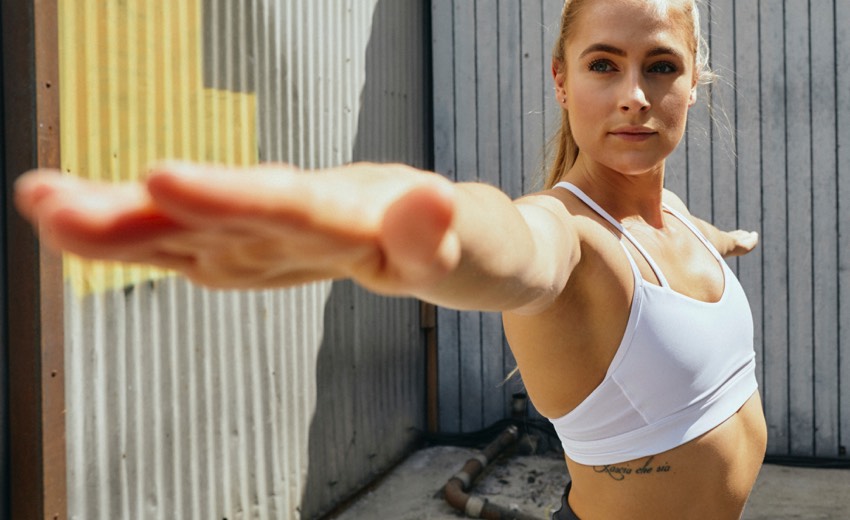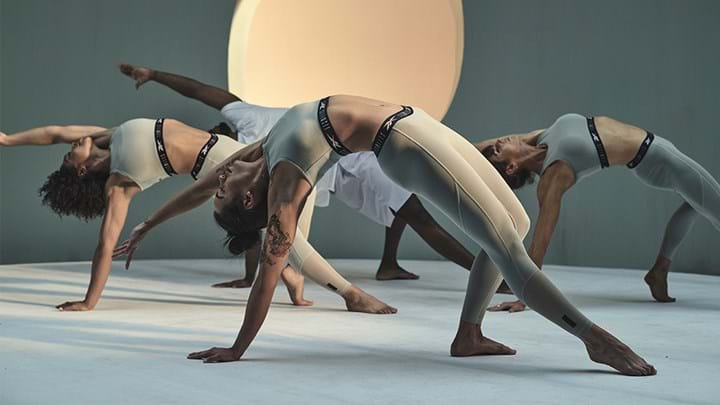When COVID-19 started spreading across the globe, it wasn't just germs endangering our health. The pandemic also infiltrated society by sparking high levels of stress and anxiety, and no one was immune. Early on, a multitude of Chinese studies found that people were experiencing high symptoms of stress, anxiety, and post-traumatic stress disorder. One study showed up to half were dealing with serious signs of depression, while another said 35 per cent were struggling with anxiety.
And according to a Kaiser Family Foundation tracking poll conducted in mid-July, 53 per cent of adults in the United States reported their mental health has been negatively impacted due to worry and stress over the coronavirus. This includes difficulty sleeping or eating, increased alcohol consumption or substance abuse, and worsening chronic conditions.
Clubs have long been hailed for the physical health benefits they bring to communities, and are increasingly shown to be a key pillar for supporting mental health as well. There are numerous studies demonstrating how general exercise supports good mental health, but less is known about the exact benefits contributed by different types of workout.
A tangible impact
However, new research offers evidence of how clubs can make a specific and significant impact. The study, presented by Professor Jinger Gottschall, at the 2020 American College of Sports Medicine Annual Conference, indicates that regular BODYBALANCE® classes can help banish the lockdown blues, increase sleep quality and boost mental health.
The study found that just six sessions can increase participants’ Heart Rate Variability (HRV) and gain the following additional benefits:
- 15 per cent improved sleep quality
- 39 per cent increase in positive feelings relating to confidence
- 39 per cent decrease in feelings of sadness and negativity
- 29 per cent increase in motivation
- 26 per cent decrease in negative emotions; anxiety and tension
- 18 per cent increase in satisfaction with daily life.
HRV is the measurement of interval variation between each beat of the heart. Tiny differences in the length of these intervals indicate that a person has a healthy cardiovascular system and is in an optimal state of recovery.
The higher the HRV, the more likely we are to be better equipped to cope with the pressures of daily life, such as stress and anxiety. Conversely, studies show that low HRV correlates with anxiety and an increased risk of cardiovascular disease.

BODYBALANCE is a new-generation yoga class that blends elements of yoga, Tai Chi and Pilates with mindfulness for a results-driven workout. It’s one of the world’s most popular yoga programs, offered by over 10,000 fitness facilities across the globe.
“The study findings show BODYBALANCE is a useful active recovery solution for improving physical and mental health, with participants reporting feeling more positive, confident and motivated,” says lead researcher Professor Jinger Gottschall.
The study found that participants who incorporate regular 30 to 40-minute sessions of this specialist stretching and meditation into their daily life experience significantly improved sleep and cardiovascular health, better recovery from mental and physical stress, and enhanced positive feelings. Researchers measured a range of responses, such as survey data related to life satisfaction and sleep quality, in addition to heart rate variability.
An antidote to modern living
As Bryce Hastings, Head of Research at Les Mills and a co-author of the study points out: “We need to understand that club members need recovery from life, not just exercise and that fitness facilities have a broader role to play in this."
“This study demonstrates that we can enhance recovery from everyday stress and exhaustion through simple and targeted movement and mindfulness training in the form of BODYBALANCE.”
“The increased popularity of ‘recovery’ is often misdirected; it assumes that only athletes and high-performance individuals need recovery. Thanks to the collective trauma our population has experienced in 2020, we are starting to understand that increasing positive emotional, mental and physiological transformation can occur with small but consistent changes that are accessible to anyone. We’re pleased to show that our evidence-backed workouts offer this.”
Central to the results was a statistically significant increase in HRV, an accurate measure of the body’s ability to regulate vital health factors such as anxiety and sleep. Crucially these results can be achieved by people who are new to exercise as well as regular gymgoers.
Myriad benefits for members
With sleeplessness on the rise since the start of the pandemic the findings offer a clear demonstration of the role that health clubs can play in helping people to tackle complex conditions well beyond the traditional goals of getting fitter and losing weight.
“What this research indicates is that, as we have long suspected, there is huge potential for fitness facilities to reach beyond their current catchment and bring tangible impacts for large sections of the population facing health issues that wouldn’t have traditionally incorporated exercise as part of the solution,” adds Hastings.
“Physical activity truly is the miracle cure and the more we can demonstrate this with tangible health outcomes derived from science-backed workouts, the sooner clubs will be able to serve broader sections of the population and drive us closer towards a truly fitter planet.”
A link to the paper published in the journal Medicine and Science in Sports and Exercise is available here.
Professor Gottschall adds: “You don’t need to be a particular level of fitness to start BODYBALANCE and by doing it on a regular basis, you can start enjoying the same benefits the study participants gained.”

